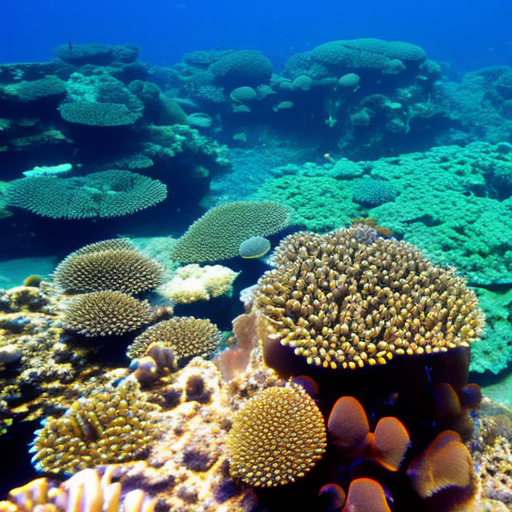Oceanography: Exploring the Depths of the World’s Oceans
Oceanography is the scientific study of the Earth’s oceans, including their physical and chemical properties, marine life, and the processes that shape and affect them. It is a multidisciplinary field that combines elements of geology, physics, chemistry, biology, and atmospheric science to gain a comprehensive understanding of the world’s oceans.
The Importance of Oceanography
Oceanography plays a crucial role in understanding the Earth’s climate system, as the oceans act as a major regulator of global climate patterns. They absorb and store large amounts of heat, distribute it around the world through ocean currents, and release it into the atmosphere. By studying the oceans, scientists can better predict and understand climate change and its impact on the planet.
Branches of Oceanography
Oceanography can be divided into several branches, each focusing on different aspects of the oceans:
1. Physical Oceanography: This branch focuses on the study of the physical properties of the oceans, such as temperature, salinity, density, and circulation patterns. Physical oceanographers use instruments like satellites, buoys, and ships to collect data and analyze the movement of water masses and ocean currents.
2. Chemical Oceanography: Chemical oceanographers study the composition and properties of seawater, including its chemical elements, nutrients, and pollutants. They investigate the processes that control the distribution of chemicals in the ocean and their impact on marine life.
3. Biological Oceanography: This branch examines the diverse life forms that inhabit the oceans, from microscopic plankton to large marine mammals. Biological oceanographers study the distribution, behavior, and ecological interactions of marine organisms, as well as their adaptation to different oceanic conditions.
4. Geological Oceanography: Geological oceanographers investigate the geological processes that shape the ocean floor, including plate tectonics, volcanic activity, and sedimentation. They study the formation of underwater mountains, trenches, and ridges, as well as the history of past climate changes recorded in ocean sediments.
Technological Advances in Oceanography
Technological advancements have greatly enhanced our ability to explore and study the oceans. Some notable tools and techniques used in oceanography include:
1. Satellites: Satellites equipped with sensors can collect data on sea surface temperature, ocean color, and sea level, providing valuable information about ocean currents, weather patterns, and climate change.
2. Autonomous Underwater Vehicles (AUVs): AUVs are unmanned vehicles that can be programmed to collect data from the ocean depths. They are equipped with sensors and instruments to measure temperature, salinity, and other physical and chemical properties of the water.
3. Remotely Operated Vehicles (ROVs): ROVs are robotic submarines that are controlled remotely by operators on the surface. They are used to explore and study the deep ocean, collecting samples, capturing images, and conducting experiments in areas that are difficult for humans to reach.
4. Sonar Technology: Sonar systems use sound waves to map the ocean floor and detect underwater objects. They are used to create detailed maps of the seafloor, locate underwater features, and study marine life.
Challenges and Future Directions
Despite significant progress, there are still many challenges in the field of oceanography. The vastness and depth of the oceans make it difficult to collect data from remote areas, and the harsh conditions pose risks to researchers and equipment. Additionally, funding for oceanographic research is often limited.
In the future, oceanographers aim to improve our understanding of the impacts of climate change on the oceans and develop sustainable management strategies for marine resources. They also seek to explore and study the unexplored regions of the oceans, such as the deep sea and polar regions, to uncover new insights into the Earth’s history and the potential for life beyond our planet.
In conclusion, oceanography is a multidisciplinary field that plays a vital role in understanding the Earth’s oceans and their impact on the planet. By studying the physical, chemical, and biological aspects of the oceans, scientists can gain valuable insights into climate change, marine life, and the geological processes that shape our planet. With continued technological advancements and increased research efforts, the future of oceanography looks promising in unraveling the mysteries of the deep sea and ensuring the sustainable management of our oceans.












